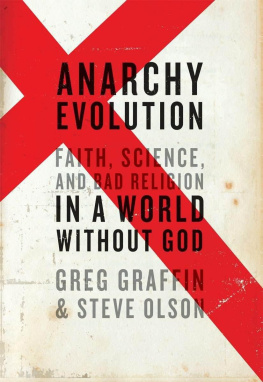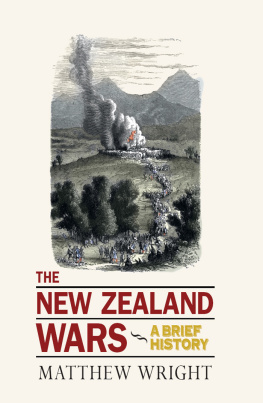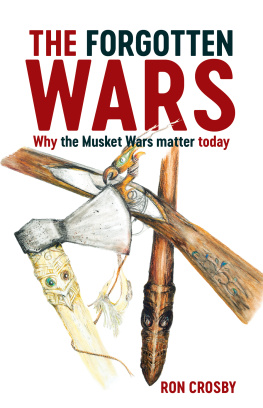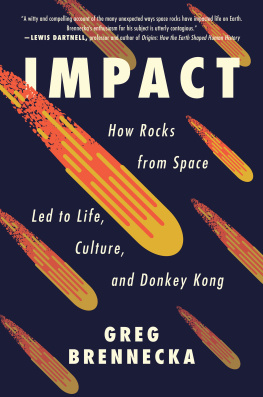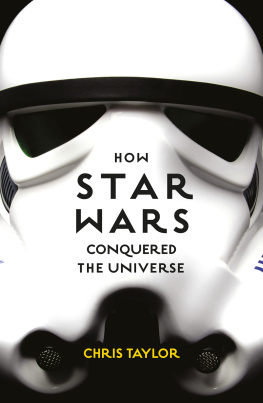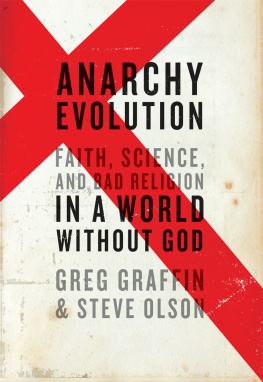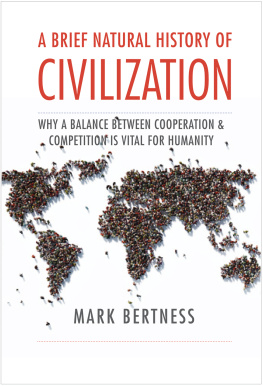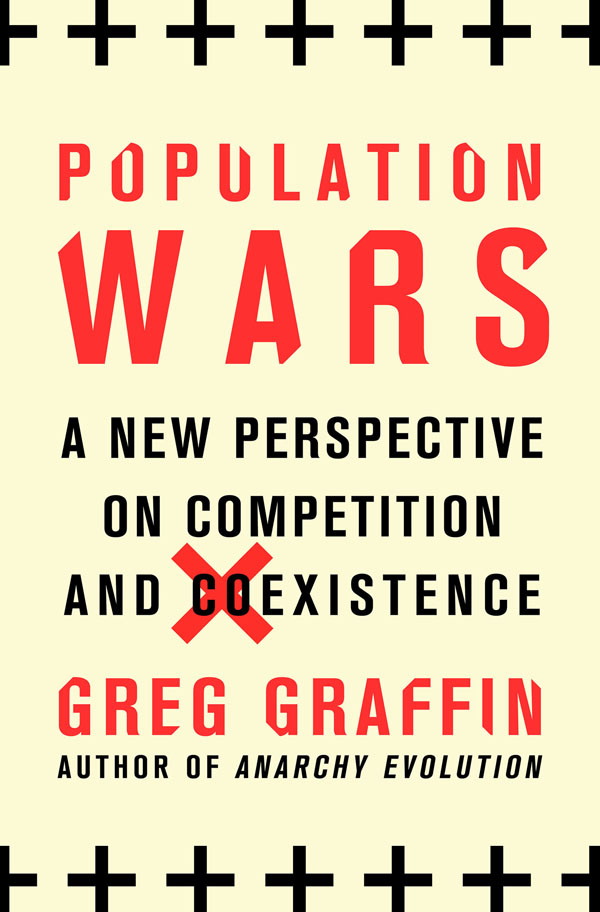Contents
Guide

The author and publisher have provided this e-book to you for your personal use only. You may not make this e-book publicly available in any way. Copyright infringement is against the law. If you believe the copy of this e-book you are reading infringes on the authors copyright, please notify the publisher at:
us.macmillanusa.com/piracy.
To Allison
POPULATION
Any group of organisms coexisting at the same time and in the same place and capable of interbreeding with one another.
David Sadava et al., Life, the Science of Biology, 8th ed.
A species in time and space is composed of numerous local populations, each one intercommunicating and intergrading with the others.
Ernst Mayr, Animal Species and Evolution
Any population tends to grow according to the compound interest law as long as the individuals continue to live under the same conditions. An increasing population cannot possibly, however, continue to live under the same conditions for many generations.
Sewall Wright, Evolution and the Genetics of Populations
The so-called unit of evolution.
Ernst Mayr, What Evolution Is
WAR
Any active hostility between living beings; a campaign against something pervasive and undesireable.
Concise Oxford English Dictionary , 12th ed.
An act of violence intended to compel our opponent to fulfill our will.
Carl von Clausewitz, 1827; On War, trans. J. J. Graham
Living things have something profound in common: They are all members of populations. In the past these groups were easy to tell apart. We humans considered some of them evil, some friendly, some wild and untamed, and some put here simply to serve our own selfish needs. It was easy to do so because we were ignorant. We didnt have DNA tests to determine relatedness. We didnt have electron microscopes to view microbes living inside us. We didnt have radioactive isotopes to calibrate the time lines of migrations. And before about 1859, we didnt have a narrative that linked all organisms as related by descent from a common ancestor.
Today, as more facts of history and biology have come to light, its much harder to draw a distinction between ourselves and those we consider others. This has created an intellectual crisis on many levels. How, for instance, do we make sense of the data that show humans are healthier when they have symbiotic bacteria living all over and inside them? This implies that our selves are actually shared communities of different species. What do we make of the data that show nearly half of our genome is from viruses? We carry around in each of our cells a habitat that allows viral replication as a necessary mechanism in the perpetuation of our own species. Another portion of the human genome is from Neanderthals, long-dead ancestors who could rightly claim us all as carrying on a portion of their genetic heritage. How can we reconcile this growing list of facts that testify to the ubiquity of symbiosis with the old narratives of competition and the struggle for existence? I think humansparticularly those who consider themselves paragons of an intellectually advanced, modern societyare having a hard time with it. Rapidly accumulating biological data are causing a dissonance of sorts between old narratives, based on ignorance, that run deep in the collective consciousness of all societies, and the new implications coming from recent studies. Scientists in general do a great job of collecting empirical data, but generally fall short in explaining the implications of their findings. Because of this, ironically, the delusions of modern Western society grow stronger in the face of increased knowledge. This is particularly evident in the narrative of war.
Why do we go to war? There are many answers, but part of this book concerns one of them: because war is an inevitable property of humankind, an inheritance from our distant ancestors, and as such its part of the interconnectedness of the biosphere throughout its long history. In other words, war is part of the symbiotic heritage of all life. Therefore we must look to coexisting populations and their interactions, historical as well as recent, human as well as other species, if we ever want a serious answer to the question above. Behaviors akin to warfare are found in species across the entire spectrum of the animal kingdom, so its no surprise that humans exhibit them too.
Despite the ubiquity (and tacit inevitability) of population wars, a closer examination of some distantly related species reveals that there is as much interdependence in the biosphere as there is violence. The present is full of assimilations from populations of the past, and when we recognize some of these, it becomes apparent that there is hope for a less violent future for humankind. Hence the inevitability of population wars doesnt mean that our future has to be violently catastrophic. In order to achieve such a result, however, humans have to come to terms with some basic facts of population biology, and we need to see a shift in consciousness away from some of our most deeply rooted prejudices and bad habits that have come from the rapid expansion of our species.
Today we exist as a globally distributed species with a particular nasty propensity: When we cant see our enemies, we invent them. This illusory act of human nature allows us to justify attempts at eradicating, eliminating, or vanquishing other people or species. But such actions nearly always fail. A further goal of this book is to highlight those failures as a reason to take a fresh approach to one of the time-honored problems of human existence: defining us as distinct from them. This is ultimately a question of biology. How distinct are different groups of living things? I hope to show you that the answer is, A lot less than you previously thought. If Im successful, youll see why we need to rethink the entire justification for war, not only the human military kind but also the thought of Darwins war of nature or struggle for existence, because war follows logically only from a notion of distinctness. If lines of distinction are blurred, whom (or what) are we fighting? In my view all types of conflict have to be recast in the light of coexistence and historical contingency. That is the message of this book.
We Americans love the war metaphor. As I write this, it seems that everyone is debating over how to deal with sinister forces that are attacking us on many fronts. We have the war on poverty, the war on drugs, the war on Ebola, the war on terror. Then theres the war on the middle class, the war on workers, the culture wars, the war on women, the war on our kids, the war on family, among many others. Given all these deadly conflicts were engaged in, its no wonder that were considered a war-weary nation. We turn to narratives of good vs. evil, such as the Star Wars epics or the slew of Marvel comic-book movies, with almost religious fervor. These simplistic tales are emotionally satisfying to the general public, perhaps because they hark back to a time when it was easier to believe that the bad guys could be easily eradicated. Unfortunately, today we know better.
Are the enemies we face in these wars conquerable? The answer is no, but it seems that most people dont know it. These trite phrasesthe war onmake for attention-grabbing headlines because of their emotional appeal, not their intellectual accuracy. Most people assume that there is an easy victory to every war. Whether its exterminating a pest from your house, eliminating a military force with a drone strike, or erasing an entire enemy population by dropping a nuclear warhead.


